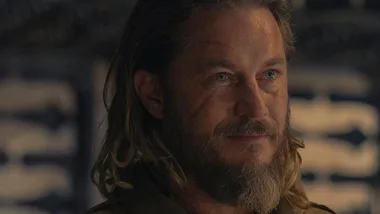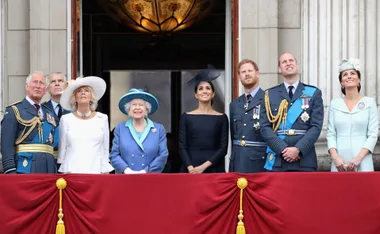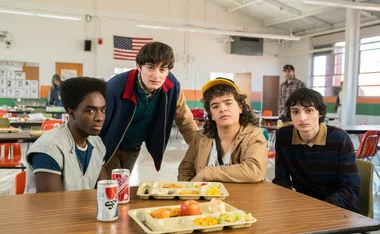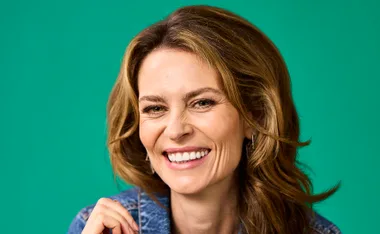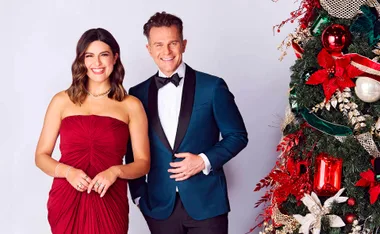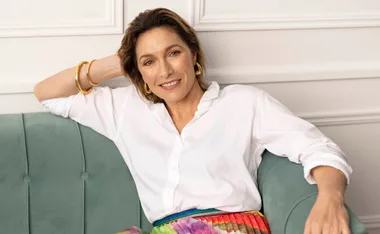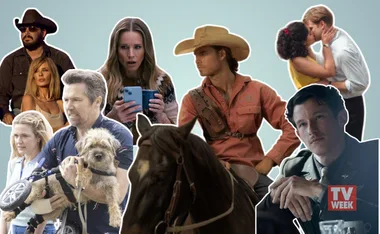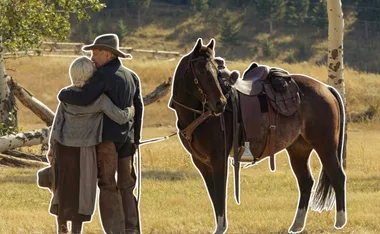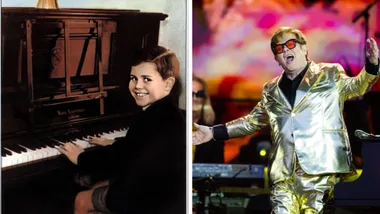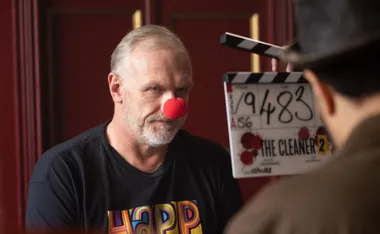Ethan Panizza gave up a career as a professional footballer in Western Australia to go to drama school. So after graduating, he didn’t want to sit around and wait for the occasional audition to come along.
“It’s hard to get into a room [an audition] in Australia,” Ethan, 27, tells TV WEEK.
“The projects are so few, or they like to see the same people. I love getting into a room and being in front of a casting director, so I packed up my stuff, jumped on a plane, went to LA and based myself there.”
Ethan soon started getting call-backs and coming “very, very close” to some good roles.
“In LA, I feel they do give new talent a chance, as there are so many projects going up,” he says.
“Everyone’s looking for that next big thing.”
Ethan is one of a tidal wave of young Australian actors crossing the Pacific to look for work in Los Angeles. Everyone hears about the rising stars: Adam Demos (UnREAL), Katherine Langford (13 Reasons Why), Eka Darville (Jessica Jones), Alycia Debnam-Carey (Fear The Walking Dead)… the list goes on and on.
So is LA really the place to be? Is it easier for an Aussie actor to make it there than at home? Or are all these successes only telling part of the story?

Ethan Panizza returned from the US to star as a gay footballer in Playing For Keeps.
Jessica Orcsik from The Australian Film & Television Academy runs a course in LA to help Aussie actors find their feet in the local industry – accents, agents and more.
The daughter of Cop Shop stars Paula Duncan and John Orcsik, Jessica came to the US looking for acting work 14 years ago. She says it was far harder back then.
“When I arrived, I got dropped by my representation,” she recalls. “I didn’t have any guidance. I went a bit crazy.”
Towards the end of the 2000s, things got much easier for Aussies trying to make it, thanks to the charms of Chris and Liam Hemsworth. But things have moved on again.
“Agents will talk about how when the Hemsworths broke, people would come down to Australia in droves and want to latch onto all the Aussies,” Jessica says.
“Now, essentially, it’s neither here nor there. People like us as a culture, but really, when you walk into that audition room, it doesn’t matter whether you’re American, British, Australian. It’s just about, ‘How good are you?'”
What makes LA so inviting right now is the amount of work available. In 2017, nearly 500 scripted series were shot in the US. That number has more than doubled in less than a decade, thanks mainly to streaming services.

Jessica Orcsik teaches Aussies how to cope in Hollywood.
Still, Jessica wouldn’t say it’s easy for Aussies to get cast in American productions.
“It depends on how hard you work and how committed you are to it,” she explains.
“But there’s certainly work to be had here, and I think that’s where the difference comes in.”
Some young actors resettle abroad with unrealistic expectations of achieving stardom overnight.
“They go, ‘Well, Margot Robbie did it,’ or ‘So-and-so did it,'” Jessica says.
“A lot of stories you hear about these actors who have just had this ‘instant break’, if you asked them, they’d probably say, ‘It wasn’t an instant break – I was back and forth for five or six years.’ You’ve got to be here and amongst it and work hard and be willing to go on an absolute roller-coaster.”

Wollongong-born actor Adam Demos in UnREAL.
Jessica Green landed her first lead role in an Australian series when she wasn’t even looking for acting work. But to score her first lead role in a US series was a much more gruelling process.
At the age of 16, Jessica was modelling on the Gold Coast when she was asked to audition for 2012 teen drama Lightning Point.
“They were looking for very specific looks for the two aliens,” she explains.
“Apparently, they’d gone through pretty much all the acting agencies and hadn’t found what they were looking for.”
Jessica fell in love with acting and in her late teens headed to the US for the three or four months of pilot season. She kept that up for almost six years.
“You get 100 ‘nos’ to every ‘yes’,” she says.
“You’ve got to keep believing in yourself. This industry is so cutthroat – it will rip you to pieces if you take it personally.”

Aussie actress Katherine Langford has made a name for herself in Hollywood.
There’s also the cost – Jessica estimates she’s spent more than $20,000 on visas – and the sacrifice of being separated from loved ones. But at least she’s had a support network in LA in her two best friends, Lightning Point co-stars Philippa Coulthard and Lucy Fry.
“We came over at the same time,” she says. “We’ve always had each other as a base.”
In the end, Jessica’s break came when she wasn’t in LA. Back home on Queensland’s Gold Coast, she got the chance to audition for the lead protagonist in fantasy-adventure series The Outpost. With her mixed-martial-arts training, it was her dream role.
“It’s quite rare you get sent for a female lead that’s such a strong character and kickarse and a hero,” she says.
Jessica taped an audition and sent it to the US. When she found out the character needed to have weapons skills, she organised herself some sword-fighting lessons and sent a second audition tape. After a Skype interview, the role of Talon was hers.
“It was amazing and such a relief as well,” Jessica, 25, says.
“If I’d given up a year ago, I never would have got this audition and landed this role.”

Fear The Walking Dead actress Alycia Debnam-Carey.
“I’ve been working in the industry for five years now,” he says. “But I’m still a nobody.”
In 2017, Shaun decided it was time to take the plunge. He left behind his wife and 11-year-old son and flew to LA.
“The first week I spent in a foetal position in a motel room,” he remembers.
“I didn’t know anyone. I didn’t know who to talk to. I was like, ‘I just want to go home.'”
Shaun filmed his experiences and started talking to other Aussie actors in LA about what
it was like for them. He’s now turning that into a documentary, That’s Not A Knife, It’s An Aussie Actor’s Journey To Hollywood.
“A lot of actors talk about depression, missing their family, the expectations that they think they need to meet,” he explains.

Casting director Anousha Zarkesh.
“A lot of them go through money problems. Everything is more expensive than they thought.”
Shaun says he wouldn’t want to live in LA himself “because I have a child, they have guns”. He’d prefer to work in Australia.
“I want to be part of Australian TV,” he says. “If someone said, ‘We’ve got you a role playing an older brother in Home And Away,’ that’d be great.”
For Charmaine Bingwa, the winner of the 2018 Heath Ledger Scholarship, heading to the US has always been part of her career plans.
“I remember, early on, an acting coach saying, ‘You should start working on your US accent,'” she says.
“I always knew that for the kind of work I wanted to do, I wanted to be in the States. I like gritty dramas. Also, my ethnicity is important to me, so I want to be able to tell stories that are important to my heritage, like the stories about civil rights that are made in America.”

Shaun A Robinson’s doco is about Aussies in LA.
The Perth actress, whose parents are from Zimbabwe, is also aware that the US is “a bit more diverse” when it comes to casting.
“But I think Australia is doing an amazing job to bring it to where it needs to be,” she adds.
Part of Charmaine’s scholarship prize involves a string of meetings with production companies. She’s still buzzing with excitement from a recent meeting at Shonda Rhimes’ company, Shondaland, which makes Grey’s Anatomy, Scandal and more.
“She signed the biggest deal with Netflix: eight new shows on their slate,” Charmaine says.
“That doesn’t happen in Australia. If you really love your craft, these are your dreams, and they come true over here.”
Charmaine has lived in LA since the end of 2017. She’s well aware of the city’s drawbacks, from air pollution to the cost of healthcare, but loves that entertainment is seen as a serious business.
“If you say you’re an actor over here, people don’t ask, ‘What’s your other job?'” she says.

Jessica Green as Talon in The Outpost.
Anousha Zarkesh has been a casting director in Australia for more than 20 years. She understands why so many Aussie actors go overseas: it’s the “slow, small” TV and film industry in this country.
According to Screen Australia, there were 36 Australian TV drama productions shot last financial year. Only a handful ran for more than 10 hours.
“Our business is a cottage industry,” Anousha says. “We make great programs and films, but we’re not Hollywood. Of course there’s more opportunity in the US.
“I understand why actors get frustrated and want to leave,” she adds. “Every year, thousands of actors come out of drama school, but only a few will work consistently.”
In the past decade, Anousha has seen a lot of Aussie actors, especially men in their thirties, become successful in the US. But she says most are “incredibly loyal” to Australia.
“You go, ‘Oh, my God – where are our leading men?'” she says. “But there’ll be one who’ll come back.”

Eka Darville in Jessica Jones.
Anousha recently cast Callan Mulvey in the film High Ground, shot in the Northern Territory.
“He couldn’t wait to come back and do an Australian story,” she adds. “Mia Wasikowska did a little spot for me on Black Comedy, because she knew the producers. Yael Stone from Orange Is The New Black did Deep Water. They still want to be part of our storytelling.”
Ethan Panizza was living in LA when his perfect role came along in 2018 – back in Australia. It was star footballer Rusty in Playing For Keeps, who comes out as gay halfway through the season.
“I was like, ‘Oh, my God − what an honour, a challenge, to get to play the first Australian Rules footballer to come out as gay,'” he says.
“As an actor, you prefer to do those interesting stories.”
Ethan is planning to return to LA. But he says he’s glad he got to star in a homegrown drama, so Australians will recognise him as an Aussie boy when he makes it overseas.
“I say ‘when’,” he adds. “Got to be positive.”
0
Callan Mulvey is back here to film.
Shaun is also heading back to the States, hoping to sell his documentary.
“Friends have asked me, ‘What happens if you don’t sell the film? What happens if you fail?
And I say, ‘The only reason I’ll fail is if I quit.'”
As for Charmaine, Australia will always be her home. But for now, she’s staying put in LA.
“There’s this contagious magic in the air,” she says. “Everyone’s here for a reason, anything’s possible and it’s sunny all the time.”
